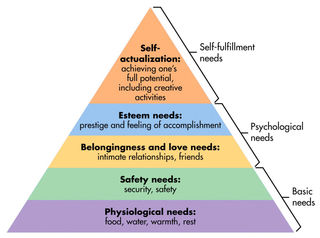How to Address Your Teen’s Issues with Poor Motivation
Getting your teen to improve his or her focus.
“If the eye is patient enough, it will get a clear view of the nose.” – Anonymous
When people think about issues related to poor concentration, they immediately think about distractions. This is even more the case when it concerns teens. Things that come to the mind of the casual observer, are smart phones, social media and troubled peers.
A quick Google search for how to improve your teen’s lack of focus, will bring up issues like attention deficit hyperactivity disorder (ADHD/ADD), depression, nutrition and strategies for developing a more efficient schedule. These topics and recommended strategies are appropriate and effective for helping your teen improve his or her issues with focus, but they cannot be effectively applied until one important issue is addressed.
Motivation.
That’s right. The primary reason young people struggle with poor focus and concentration is a general lack of motivation to do anything meaningful. The teen who lacks motivation will often gravitate towards activities which greatly stimulate neuro-chemicals associated with the brain’s reward system.
Activities such as video games, food, mind altering substances, alcohol and sex. These are things bored teens are likely to engage in habitually, in order to feel alive. This is because, in the absence of motivation to succeed, the teen is faced with a difficult reality consisting of a monotonous chore and a daily schedule. Even things like daily showers can seem time consuming and tiring to a teen who struggles with low motivation. It is also important to note that these issues are also symptoms of depression with a teen.
Before we begin processing on how to get teens more motivated, it is important to come to an understanding on what motivation is. According to Wikipedia, the term motivation is derived from motive. Motive means a need that desires satisfaction. So, for a teen to be motivated, he or she must be actively pursuing a need which desires satisfaction.

Maslow’s Hierarchy of Needs.
Typically, we understand needs to be intrinsic materials necessary to keep us alive, such as food, water and shelter. However, an expanded discussion on the issue of needs would be based on the famous work of Abraham Maslow, regarding his hierarchy of emotional needs.
According to Dr. Maslow’s theory, there are two types of needs people strive for. They are deficiency needs and growth needs. Deficiency needs are comprised of basic needs and psychological needs. These are physiological needs, which have to do with food, water and shelter. Followed by the need for safety and security. The physiological needs and the safety needs are known as basic needs.
Next are the psychological needs, which have to do with the needs for a sense of belonging and feeling accepted. This is also followed by the need for esteem, which has to do with prestige and status in society. According to Dr. Maslow, people are only motivated to get these needs met, when these needs are deficient in their lives. Once these needs are met, people are no longer motivated in getting them met, which opens the door for addressing growth needs.
Then there are the self-fulfillment needs, which Dr. Maslow describes as self-actualization coming from having achieved one’s full potential. He also describes this as growth needs. Unlike deficiency needs, people become more motivated as their growth needs are met.
So, a teen who practices the courage to do his best in understanding calculus, becomes more motivated the more he succeeds and subsequently more focused. Further, teens who are experiencing success in achieving their potential, are also very disciplined in their home life. For example, they are disciplined in following through consistently with their assigned chores and personal hygiene.
It has been theorized that teens who struggle with depression, have experienced very little success in effectively getting their psychological needs met. This topic will be addressed in another post.
Often Motivated.
Upon examining Maslow’s hierarchy of needs, it is easy to conclude that most teens don’t have low motivation. Rather, most teens are preoccupied to getting their deficiency needs (acceptance and recognition) met, rather than their growth needs (success in academia) met.
Such a phenomenon is easy to witness with teens from low socio-economic backgrounds, such as an obsession in getting their physiological and safety needs met. However, with teens from middle class backgrounds and up, their focus is often on their psychological needs. For example, relationship with friends, close friendships and status among peers.
When teens are focused on getting their deficiency needs met, they are not going to be focused on issues regarding self-discipline and mastery. For a parent to help his or her teen become more focused on growth needs, he or she will have to teach his or her teen how to effectively get their deficiency needs met.
Conflict of Beliefs and Values.
This may be easier said than done, as today’s teenager is often exposed to new values and beliefs through social media. Meaning, that these values and beliefs are often in conflict with the teaching of the parents.
So, efforts to help the teen address his or her deficiency needs may result in a stalemate between parent and teen. Which then leads to a recurring problem with a lack of focus due to poor motivation with issues like school work, personal hygiene and chores.
The solution for a situation like this will be for parents to seek therapeutic services to assist their teen in effectively getting their deficiency needs met, in order to focus on his or her growth needs.





